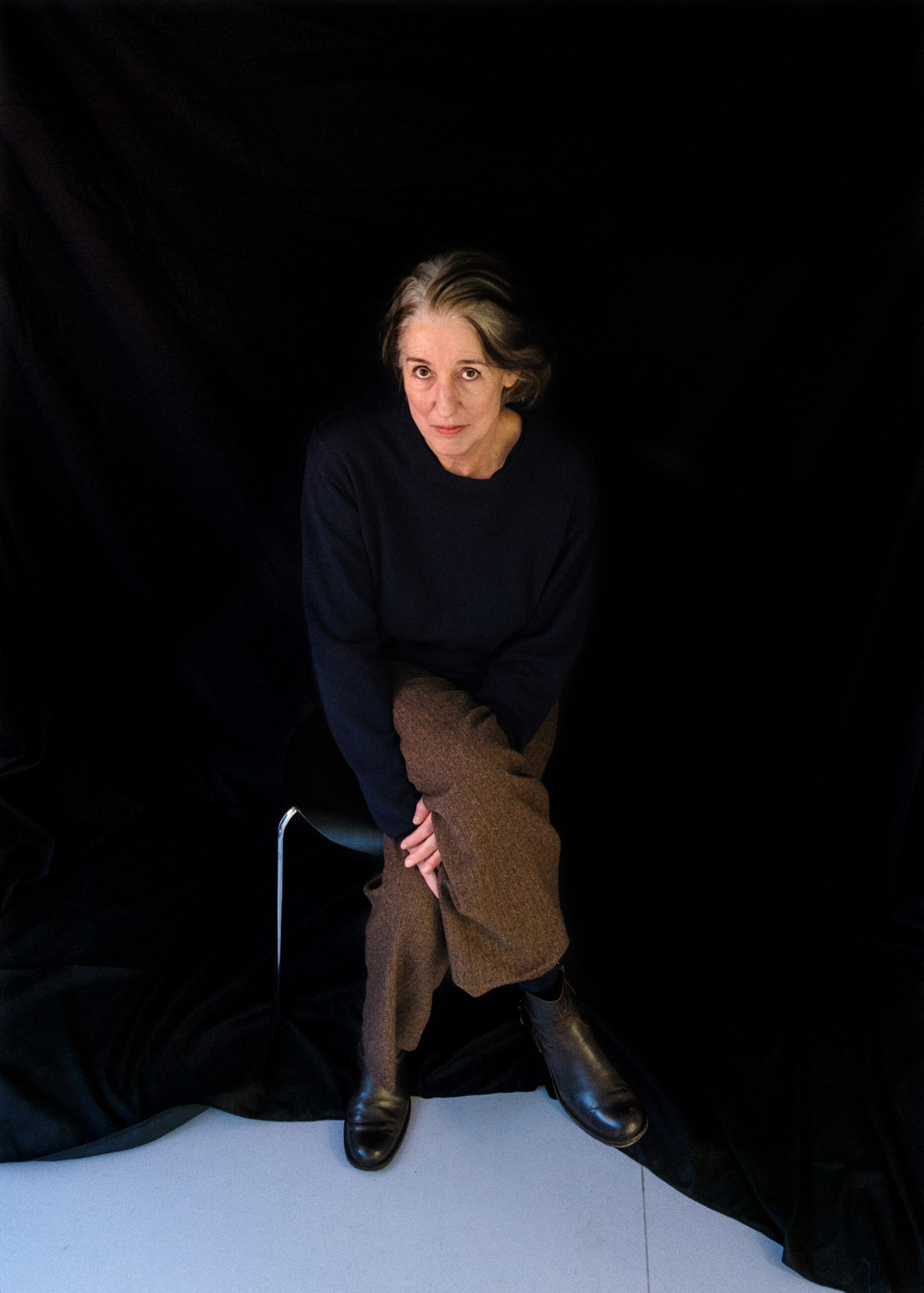
Judith Kuckart, born in 1959 in Schwelm (Westphalia), lives as an author and theatre director in Berlin and Zurich. In 1986, she founded the dance theatre Skoronel, which she managed until 1998. With DuMont, Judith Kuckart has published the novel ‘Lenas Liebe’ (2002), which was filmed in 2012, the story collection ‘Die Autorenwitwe’ (2003), release of her novel ‘Der Bibliothekar’ (2004), as well as the novels ‘Kaiserstraße’ (2006) which was shortlisted for the Leipzig Book Prize, ‘Die Verdächtige’ (2008), ‘Wünsche’ (2013) which was the longslisted for the German Book Prize in 2013, and “Das man durch Belgien muss auf dem Weg zum Glück” (2015),
Judith Kuckart’s novels Kein Sturm, nur Wetter (No Storm, Just Weather 2023) ) and Die Welt zwischen den Nachrichten (Between the Headlines 2025)) have been or will soon be translated into English for Seagull Books.
Judith Kuckart came to writing not primarily through the academic study of literature, but from dance and the theatre. Following training in classical ballet and modern dance in Düsseldorf and Essen, and the formative experience of visits to the theatre of Pina Bausch, she came together with an ensemble of four in Berlin in 1984 to devise her first original dance piece, Kassandra, based on the novel by Christa Wolf. The young company gave itself the name Skoronel – after Vera Skoronel, the practitioner of expressive dance who died in 1932 at the age of 25. On the advice of Hans Züllig, Judith Kuckart attended the Folkwang school in Essen in 1985 before she was taken on by Johann Kresnik as his assistant to work on the dance piece Pier Paolo Pasolini at his Choreographisches Theater (Choreographic Theatre) in Heidelberg. With its second production, Ophelia, kann sein (Ophelia, may be) from 1986 Skoronel began to acquire a reputation among audiences and critics. Together with Jörg Aufenanger, co-author of Eine Tanzwut (Furious Dance), a visual history of Skoronel, Judith Kuckart ran the ensemble until 1998. Often in collaboration with major theatres, they put on seventeen productions altogether, for which Judith Kuckart devised material and choreographies and later also wrote libretti and plays, which she directed herself. From the very beginning what Judith Kuckart sought to achieve in her work with Skoronel was an experiential unity of body language and poetic language. At first she drew on texts by other authors, but from the play Charlotte Corday (1989) onwards she based her work almost entirely on texts of her own, which became increasingly narrative in character and which, as in Last Minute, Fräulein Dagny (One Minute, Ms. Dagny) and Melancholy 1 oder die zwei Schwestern (Melancholy 1 or the Two Sisters) had complex stories to tell.
Since Skoronel disbanded Judith Kuckart has been working as a freelance theatre director. Plays she has directed include Kleist’s Penthesilea at the Stadttheater (Municipal theatre) in Baden-Baden in 1999 and her own Blaubart wartet (Bluebeard is Waiting) for the Berliner Festspiele in 2002. In 2009 she directed Lothar I. (Lothar the 1st) for the Bremer Shakespeare Company and in 2008 Die Vormieterin (The Previous Tenant) for the Kammerspiele Paderborn – in both cases using texts developed by the ensemble during rehearsal. Subsequent productions included Carmen ein deutsches Musical (Carmen, a German Musical) at the 2010 Bad Hersfeld Theatre Festival and in 2015 with the Bremer Shakespeare Company the circus play Und wann kommen die Elefanten (And When Are the Elephants Coming), which makes play with scientific discoveries about the brain. Following an adaptation of Annette von Droste Hülshoff’s Judenbuche (Jews Beech) staged in Burg Hülshoff in 2016 under the title Mutter, lügen die Förster (Mother, Do Woodmen Tell Fibs?), she devised the narrative theatre piece Heimaten (Belongings) with actors and local historians from Syria, Siberia, Angola and Willebadessen in her grandmother’s home village in Eastern Westphalia in 2017. Further plays and productions followed, at locations including the Theater Paderborn, the Shakespeare Company in Bremen and the Bremerhaven Municipal Theatre. In 2021 she produced Die Erde ist gewaltig schön, aber sicher ist sie nicht (This Earth is Amazingly Lovely, but not a Safe Place to be) with her old Skoronel Ensemble in collaboration with the Literaturtage Wiesbaden (Wiesbaden Literary Festival) and under the hospitable auspices of the Hessiches Staatsballett (Hessian State Ballet). The piece tells of the uncertainties, both with regard to finances and to mental health, that beset members of the ensemble, who are now between 52 and 76 years of age. For the Pina Bausch Centre in Wuppertal she conceived and produced the project Von Wandermenschen und Sofamenschen (Of Wanderers and Ponderers) with part of her old Skoronel Ensemble and students from the universities of Düsseldorf and Wuppertal.
Dance and the theatre also feature in Judith Kuckart’s novels and stories. In her first books critics noted The “Aesthetics of Dance in the Text” (Monika Maron on Wahl der Waffen [Choice of Weapons] in the Spiegel in 1990) and the “Precision in the observation of body language” (Rainer-K. Langner on Die schöne Frau (The Beautiful Woman) NDL 1994). Beyond this it is above all in the biographies of the protagonists that the author’s experience of the theatre is reflected. The actress Lena and the dancer Jule in Lenas Liebe (Lena’s Love) and Kaiserstrasse respectively share the adventure of the stage with Vera from Wünsche (Wishes). Judith Kuckart’s novels Kein Sturm, nur Wetter (No Storm, just Weather) ) and Die Welt zwischen den Nachrichten (Between the Headlines) have been or will soon be translated into English for Seagull.
